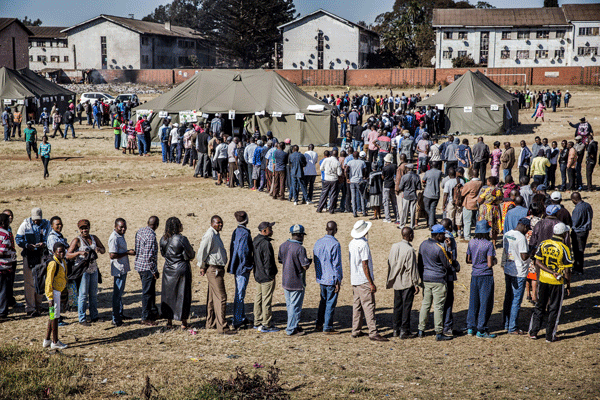
By Desmond Muchadei Sharukai and Tonderai Dombo
Recent political developments in Zimbabwe have triggered debate on whether elections are indeed about the electorate or are more about the person being voted for, their party affiliation and the seat they are running for. In an election, who matters most, the voter, the candidate, the seat or the political party? In Zimbabwe, the legislative mandate is drawn from the people through elections according to Section 117 (1) of the Constitution. Therefore, from a voter perspective, elections are about maintaining the status quo or replacing the incumbent government with a new one. Loosely translated, an election is a process of affirmation for one’s support and confidence in the status quo or an expression of their discontent.
The recalling of MPs is not a new phenomenon in Zimbabwean political history. One would remember the recalls of estranged Zanu PF MPs in 2014 and 21 opposition MPs who left the Morgan Tsvangirai-led MDC under the MDC Renewal project in the same year. What has made this time peculiar is the scale and also the circumstances the main opposition finds itself in, with a vast number of its sympathisers failing to understand the rationale behind such arbitrary political party power on display against the wishes and choices of the electorate.
The expectation by the electorate after an election is that the elected member of parliament or councillor, represents their collective interest. Failure to do so, those who would have voted them in should have the right to collectively recall this individual.
Unfortunately, this is not the case in Zimbabwe. Section 129 (1) (k) of the Constitution, gives power to a political party to recall a parliamentarian who was voted for under its banner. This perhaps is the greatest travesty of electoral democracy in contemporary politics. This is a direct mockery of the will of the people as expressed through the vote, giving the impression that the electorate surrenders political agency to political parties immediately after elections.
This is a reality that voters are not exposed to when it comes to elections, as the illusion that their voices will be heard in parliament and council is all they have to hold on to, yet in reality these are arenas of political party contestation.
Section 117(1) of the Constitution posits that legislative authority is derived from the people and is exercised in accordance with the said Constitution by the Legislature. It is therefore undoubtable that legislative authority comes from the people, and not from political parties. Therefore, the critical political and legal question is: How rational and legally correct is it for the Constitution to bestow the power and authority to recall elected officials, who were voted for by people of different socio-political ideologies and identities, on political parties?
Indeed, there is discord in this approach which is more logical in a proportional representation system and not in the first-past-the-post system which Zimbabwe uses. It is, however, prudent to mention that Zimbabwe has a hybrid election system which basically has both first-past-the-post (for national assembly) and proportional representation (for Senate and the Women’s Quota). However, in relation to recall, in proportional representation it’s the political parties who reserve the right to recall and in first-past-the-post it should be the electorate.
- Chamisa under fire over US$120K donation
- Mavhunga puts DeMbare into Chibuku quarterfinals
- Pension funds bet on Cabora Bassa oilfields
- Councils defy govt fire tender directive
Keep Reading
Section 129 (1) (k) when translated, one would argue, is bad at law and needs to be toned down or outright repealed because it creates the chaos we are witnessing in Zimbabwe today. In the end it brings with it a financial burden to taxpaying citizens when by-elections are eventually called for because MPs and councillors are recalled by their parties, without the consent of those who voted for them in the first place, for not toeing the party line. It is undoubtable that the decision to recall elected officials should be up to the voter and this right must be protected by the law. This will not only increase accountability of the elected officials to their constituencies, but also ensure legislators’ loyalty belongs to the people first and political party second.
More importantly, the mass recalling of MPs and councillors will have a negative effect on the broader youth civic participation and engagement with duty bearers. Prior to the recalls, the country had been witnessing low levels of youth engagement with duty bearers.
According to the 2019 Youth Empowerment and Transformation Trust’s Youth Situational Analysis research study report, 87% of young people had never contacted their ward councilor about an important issue in the 12 months preceding the study. Ninety-four percent had never contacted their MP or government official respectively. Left unchallenged, such re-calls will give birth to increased citizen fatigue with elections and their role in the development discourse in Zimbabwe. Zimbabwean citizens and young people in particular need to play an active role in reclaiming citizen power and authority highlighted in Section 117 (1) by challenging the legality of Section 129 (1) (k). Political parties should never be allowed to override the representation function of elected officials.
l Desmond Muchadei and Sharukai Tonderai Dombo are human rights activists, who specialise in youth development and elections. They can be reached on [email protected] and [email protected] respectively










